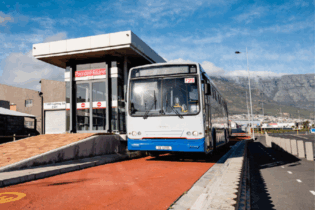Heavy Engineering firm DCD says the Passenger Rail Agency of SA (Prasa) has set the bar too low for local content in its procurement of train sets.
It says an updated tender issued by Prasa on July 18 still only requires a zero to 40% local content threshold over the first three years of its 20-year R123bn procurement programme. This means foreign manufacturers could supply complete motorised electric coaches or components at the expense of South African industry. DCD says the message it is getting from the market is such products will be imported by Prasa for the first three years. This comes as suppliers in SA are already achieving more than 50% local content in making railway products for related statutory body Transnet. “In Prasa’s instance they have not engaged properly with industry,” Rob King, DCD MD, said on Thursday. “It is in the interest of foreign manufacturers to tell the state that SA does not have the capacity (to make train sets) – and we challenge that,” he said. He also said 85% of Prasa’s tender process was based on price, with only 7% factored for local content and job creation. Transnet Freight Rail (TFR) on Monday issued a possible R25bn tender for 599 electric locomotives and another 465 diesel locomotives for general freight transport. The immediate local content threshold is 60% for electric locomotives and 55% for diesel versions.“I think TFR have got it right,” King said.
Earlier this month, DCD launched a new bogie, which meets international and TFR specifications, having 85% local content. Bogies are wheeled chassis for heavy transport equipment such as train coaches. DCD said its product substantially beat Prasa’s tender requirements for companies to become preferred suppliers. The group subsequently made representations to government, stating Prasa’s minimum local content requirements were too low. Daryl Leggitt, technical manager at DCD Rolling Stock, said on Thursday it appeared Prasa wanted proven products, because new passenger railway coaches had not been built in SA for 20 years, despite DCD products already meeting specifications. Source: http://www.businesslive.co.za






